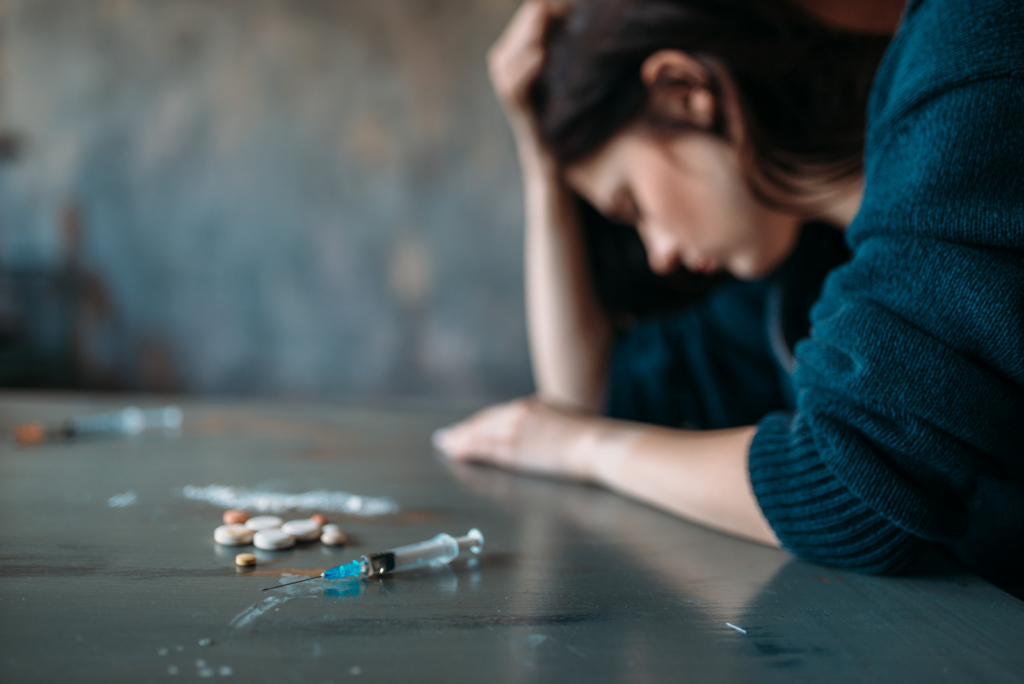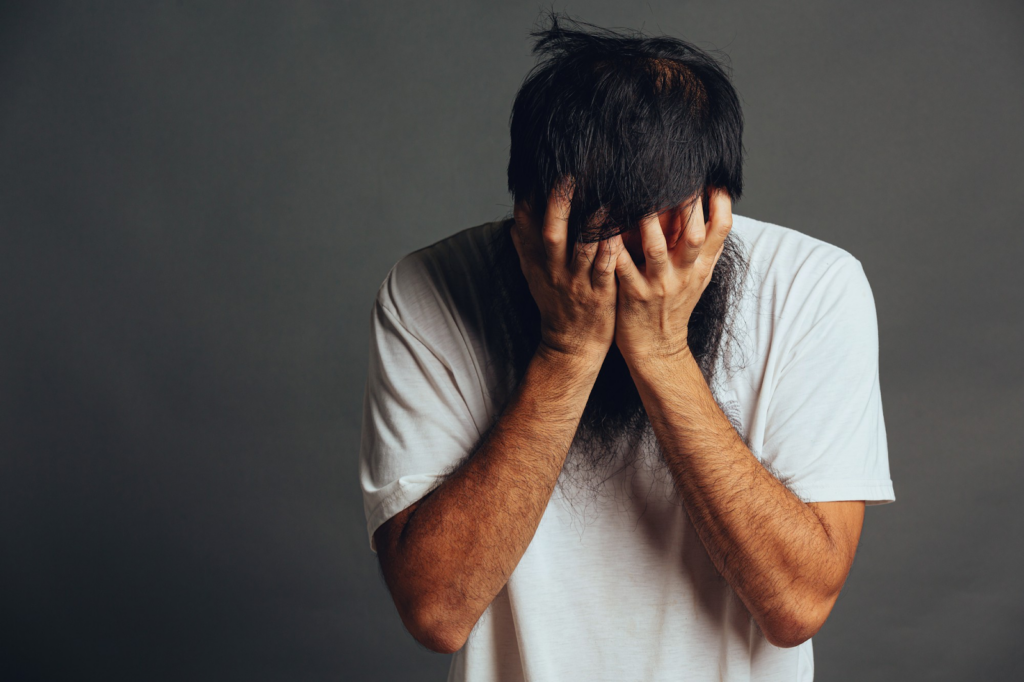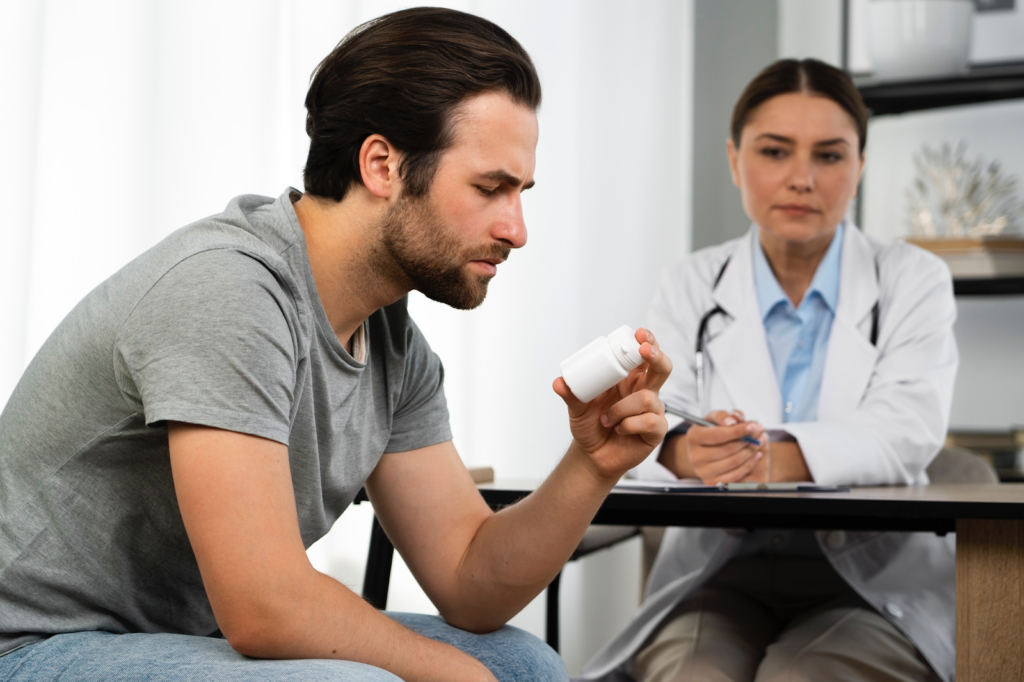Breaking free from heroin addiction can be an incredibly challenging journey. The withdrawal symptoms accompanying the process can be overwhelming and difficult to cope with. However, understanding the nature of these symptoms and having the right strategies in place can make the process more manageable.
In this article, we will explore the withdrawal symptoms individuals may experience when detoxing from heroin and provide effective coping mechanisms. So, if you or a loved one is struggling with heroin addiction and preparing to break free, this article will serve as a valuable resource to help you understand and cope with withdrawal symptoms.
Understanding Heroin Addiction and Withdrawal

Heroin addiction is a complex and chronic disease that affects millions of individuals around the world. It is an opioid drug derived from morphine, which is obtained from the seeds of the opium
poppy plant. The drug produces a sense of euphoria and relaxation, but prolonged use can lead to dependence and addiction.
When someone addicted to heroin decides to quit, they will experience withdrawal symptoms as their body adjusts to the absence of the drug. These symptoms can vary in intensity and duration depending on factors such as the individual’s dependence level, drug use duration, and overall health.
Common Withdrawal Symptoms of Heroin Addiction

Withdrawal symptoms from heroin addiction can be both physical and psychological.
The physical symptoms may include:
- Nausea
- Vomiting
- Diarrhea
- Abdominal pain
- Muscle aches
- Sweating
- Chills
- Insomnia
These symptoms can be extremely uncomfortable and can make it difficult for individuals to function in their daily lives.
Psychological symptoms of heroin withdrawal can include anxiety, irritability, restlessness, depression, and intense drug cravings. These symptoms can be equally challenging to manage and can significantly impact an individual’s emotional well-being.
The Physical and Psychological Effects of Heroin Withdrawal

During the heroin withdrawal process, the body undergoes significant changes as it adjusts to the absence of the drug. The physical effects of withdrawal stem from the body’s attempt to regain balance after being dependent on heroin. This can result in a range of discomforts, including muscle aches, tremors, sweating, and gastrointestinal distress.
On the other hand, the psychological effects of heroin withdrawal are often the result of the brain’s response to the absence of the drug. Heroin affects the brain’s reward system, causing a surge of dopamine, which is responsible for feelings of pleasure and reward.
When heroin is no longer present, the brain struggles to produce the same levels of dopamine, leading to feelings of depression, anxiety, and irritability.
Coping Strategies for Managing Heroin Withdrawal Symptoms

While heroin withdrawal symptoms can be challenging to manage, there are various coping strategies that can help individuals navigate this difficult process. It is important to remember that what works for one person may not work for another, so it may take some trial and error to find the most effective strategies. Here are some coping mechanisms that can be helpful.
Seek medical supervision
Detoxing from heroin can be dangerous, and it is advisable to seek medical supervision to ensure safety. Medical professionals can provide medications and support to manage withdrawal symptoms effectively.
Practice self-care
Engaging in self-care practices can help alleviate some of the discomfort associated with withdrawal. This can include getting enough rest, eating nutritious meals, staying hydrated, and engaging in gentle exercise.
Utilize relaxation techniques
Techniques such as deep breathing, meditation, and progressive muscle relaxation can help reduce anxiety and promote a sense of calm during withdrawal.
Seek support from loved ones
Having a strong support system can make a significant difference during the withdrawal process. Reach out to trusted friends and family members who can provide emotional support and encouragement.
Consider therapy
Therapy can be an effective tool for managing the psychological effects of withdrawal. Cognitive-behavioral therapy (CBT) and counseling can help individuals develop coping mechanisms, address underlying issues, and prevent relapse.
Medications and Therapies for Heroin Withdrawal

In addition to coping strategies, medications and therapies can help individuals manage heroin withdrawal symptoms more effectively. These treatments are often used in conjunction with counseling and support.
- Medication-assisted treatment (MAT): MAT involves the use of medications such as methadone, buprenorphine, and naltrexone, which help reduce withdrawal symptoms and cravings. These medications can be prescribed by a healthcare professional and should be used under their supervision.
- Behavioral therapies: Behavioral therapies, such as contingency management and motivational interviewing, can help individuals develop healthier behaviors and attitudes toward drug use. These therapies focus on reinforcing positive behaviors and providing incentives for sobriety.
Support Systems for Overcoming Heroin Addiction
Recovering from heroin addiction requires a strong support system. Various support systems available can provide the necessary guidance and encouragement during the recovery process. These include:
- 12-step programs: Programs such as Narcotics Anonymous (NA) and Heroin Anonymous (HA) provide a supportive community of individuals who have experienced similar struggles. These programs follow a 12-step approach and offer meetings and resources for individuals seeking recovery.
- Outpatient and inpatient treatment programs: Treatment programs, whether outpatient or inpatient, provide structured support and therapy for individuals seeking recovery. These programs offer a range of services, including counseling, group therapy, and medical supervision.
- Sober living communities: Sober living communities provide a drug-free and supportive environment for individuals in recovery. These communities offer peer support, accountability, and a safe space to navigate early sobriety.
Self-Care Tips for Maintaining Sobriety

Self-care is an essential aspect of maintaining sobriety and promoting overall well-being. Here are some self-care tips that can help individuals in their recovery journey:
1. Prioritize physical health: Engage in regular exercise, eat a balanced diet, and get enough sleep. Taking care of your physical health can contribute to improved mental well-being.
2. Practice mindfulness: Incorporate mindfulness techniques such as meditation, deep breathing, or journaling into your daily routine. These practices can help reduce stress and promote emotional balance.
3. Engage in enjoyable activities: Find activities that bring you joy and engage in them regularly. This includes hobbies, leisure time in nature, or pursuing creative outlets.
4. Set realistic goals: Set small, achievable goals for yourself and celebrate your accomplishments along the way. This can help boost your self-esteem and motivation.
Resources and Helplines for Heroin Addiction Recovery
If you or a loved one is struggling with heroin addiction, numerous resources and helplines are available to provide support and guidance. Here are some organizations that can offer assistance:
- National Helpline for Substance Abuse and Mental Health Services: 1-800-662-HELP (4357)
- Narcotics Anonymous: www.na.org
- Heroin Anonymous: www.heroinanonymous.org
- Substance Abuse and Mental Health Services Administration (SAMHSA)
Remember, reaching out for help is a sign of strength, and there are professionals and organizations ready to support you on your journey to recovery.
Conclusion: Breaking Free and Living a Drug-Free Life
Breaking free from heroin addiction is a challenging process, but with the right strategies and support, it is possible to overcome withdrawal symptoms and maintain long-term sobriety. Understanding the nature of heroin withdrawal, utilizing coping strategies, seeking professional help, and engaging in self-care practices are all crucial steps in the recovery journey.
If you or a loved one is preparing to break free from heroin addiction, remember that you are not alone. Reach out for support, explore the available resources, and take one day at a time. Recovery is possible, and a drug-free life is within reach.